Table of Contents
In today’s rapidly changing world, the transition to renewable energy sources is not just a matter of environmental responsibility; it’s also a smart financial move. Investing in renewable energy offers the potential for substantial returns while contributing to a more sustainable future.
This comprehensive article explores the opportunities and benefits of renewable energy investments, also known as green investing, focusing on clean energy stocks.
The Rise of Renewable Energy Investments
Renewable energy investments have gained significant traction in recent years, driven by several key factors:
Environmental Concerns
Environmental concerns have reached a critical juncture as the world grapples with the pressing need to combat climate change. The scientific consensus on the adverse effects of greenhouse gas emissions, primarily carbon dioxide, on the planet’s climate systems has intensified global efforts to mitigate these impacts.
Governments, recognizing the gravity of the situation, have begun implementing stringent environmental regulations and policies aimed at reducing carbon emissions.
This has translated into a favorable regulatory environment for renewable energy, as it represents one of the most effective means of significantly lowering greenhouse gas emissions.
Governments are incentivizing the development and adoption of clean energy solutions, offering subsidies, tax incentives, and other forms of support to both individuals and businesses that invest in renewable energy sources.
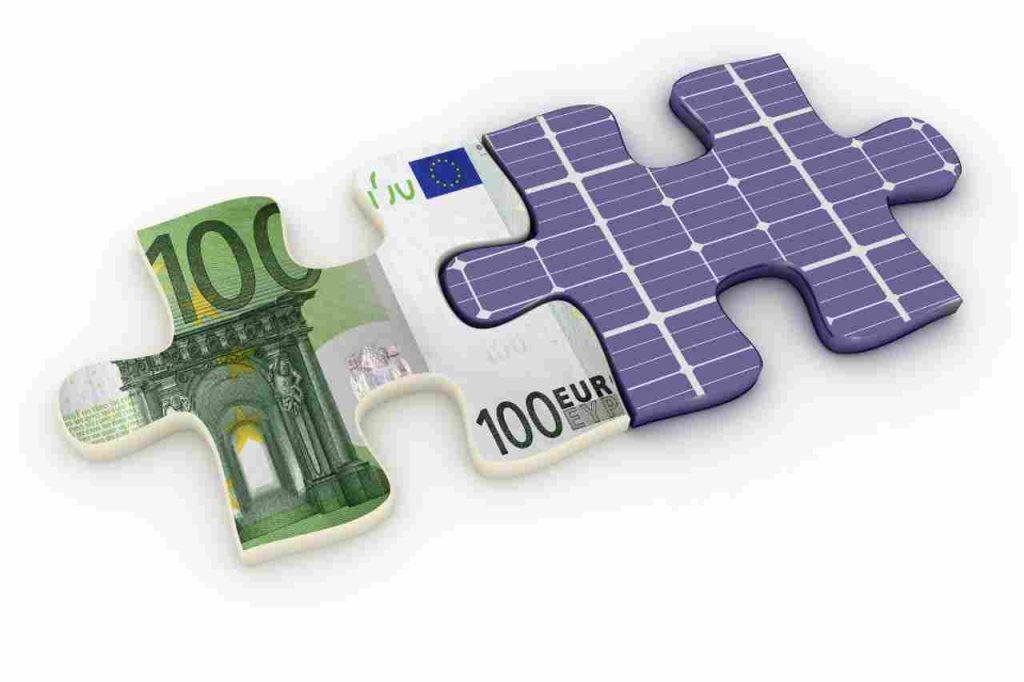
At the same time, businesses realize how important it is to coordinate their efforts with sustainability objectives to satisfy environmentally sensitive customers. As a result, many large corporations are implementing sustainability policies that include not only decreasing their carbon footprints but also making significant investments in renewable energy projects.
This corporate shift towards clean energy solutions further fuels the growth of the renewable energy sector, as it both drives demand and stimulates innovation.
In essence, environmental concerns have catalyzed a collective global effort to transition away from fossil fuels and embrace renewable energy sources, creating a fertile ground for green investments and sustainable energy solutions.
Economic Viability
Economic viability is at the core of the renewable energy revolution, as significant technological advancements have revolutionized the clean energy landscape. Notably, solar and wind power, once considered expensive alternatives, have witnessed substantial cost reductions, rendering them highly competitive within the broader energy market.
Developing more efficient solar panels, innovative wind turbine designs and improved energy storage solutions have substantially lowered the overall cost of renewable energy generation.
These technological breakthroughs have not only reduced the initial capital investment required for renewable energy projects but have also increased their energy output efficiency, enhancing their attractiveness to investors and consumers alike.
The declining cost of renewable energy technologies has disrupted the traditional energy sector, making clean energy sources more economically appealing than fossil fuels in many regions. This economic advantage has led to a surge in renewable energy adoption, not only by environmentally conscious individuals but also by governments and corporations seeking cost-effective and sustainable energy solutions.
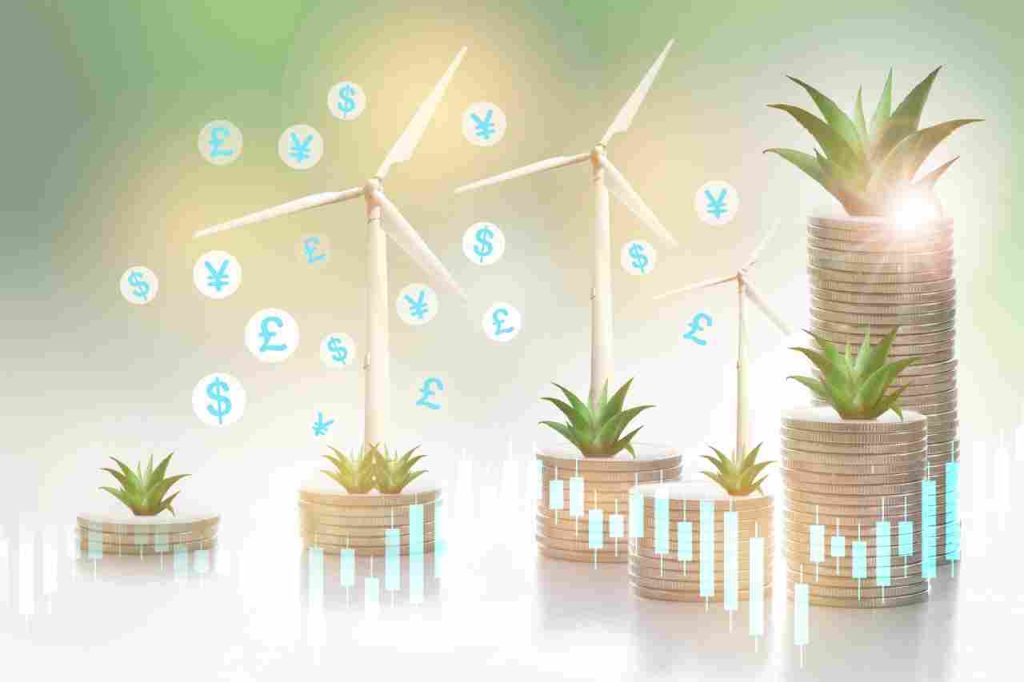
As renewable energy continues demonstrating its economic viability, it has transitioned from being perceived as a niche option to a mainstream and economically prudent choice, driving a monumental shift towards a cleaner and more sustainable global energy landscape.
Public Demand
Public demand for clean energy initiatives has experienced a significant upswing in recent years, driven by an increasing awareness of pressing environmental issues. As the consequences of climate change become more evident, a growing segment of the global population has become more environmentally conscious and concerned about the long-term impact of their energy consumption choices.
This heightened awareness has translated into a strong and vocal demand for cleaner, more sustainable energy solutions.
The surge in public support for clean energy initiatives has played a pivotal role in fostering a robust market for renewable energy projects. Individuals and communities are advocating for cleaner energy options, pushing for policy changes that incentivize the adoption of renewable energy sources, and even investing directly in clean energy projects such as solar panels on residential properties.
This surge in public demand has created a virtuous cycle, encouraging governments, corporations, and investors to allocate more resources toward renewable energy research, development, and implementation.
It has also led to greater accountability among businesses, as consumers increasingly prefer companies that are committed to environmental sustainability.
In essence, the growing public demand for clean energy has catalyzed a transformative shift towards renewable energy adoption, helping accelerate the global transition to a more sustainable and eco-friendly energy landscape.
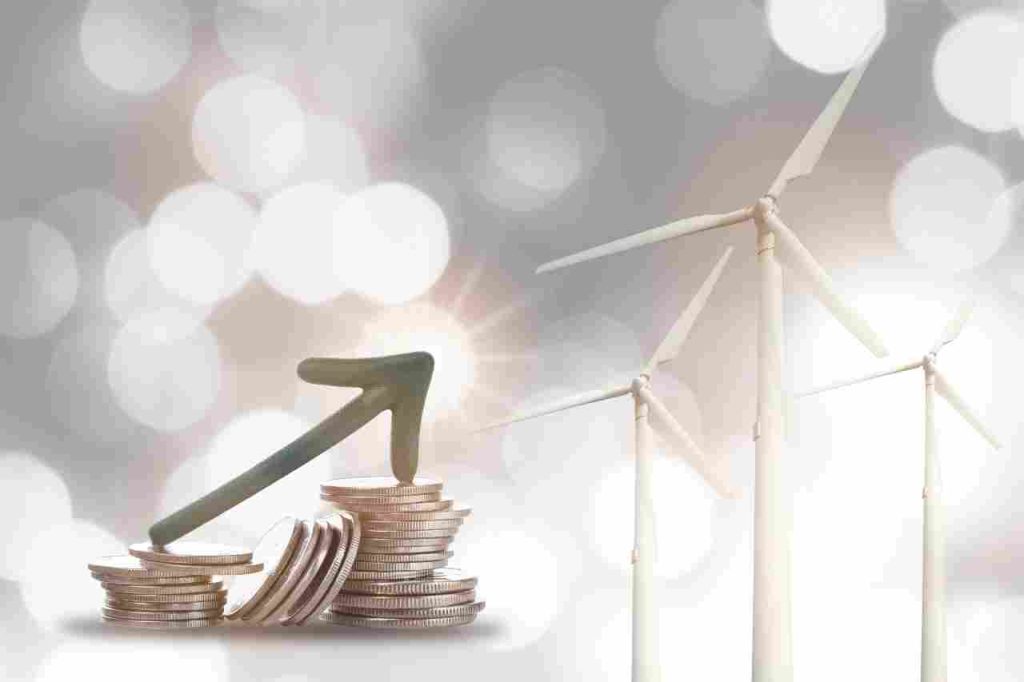
The Benefits of Investing in Renewable Energy
Sustainable Returns
Sustainable returns are a compelling reason for investors to consider renewable energy as a lucrative and responsible investment option. Clean energy stocks have shown remarkable resilience, even amid economic downturns and market volatility.
This resilience can be attributed to several factors, including the consistent demand for clean energy, government support, and the increasing adoption of renewable technologies.
First and foremost, the demand for clean energy remains steady and, in many cases, continues to grow. As the world grapples with environmental concerns and the urgent need to reduce carbon emissions, governments, businesses, and individuals increasingly turn to renewable energy sources.
This consistent demand provides a stable revenue stream for clean energy companies, which can translate into reliable returns for investors.
Additionally, governments worldwide are committed to transitioning to cleaner energy sources, often offering incentives such as subsidies, tax credits, and favorable regulatory frameworks to promote renewable energy adoption. These incentives not only reduce the risks associated with clean energy investments but also enhance the potential for attractive returns.
Furthermore, the global shift towards renewable energy sources is not a short-term trend but a long-term trajectory. As nations set ambitious renewable energy targets and work towards achieving them, the clean energy sector is expected to continue its growth for decades to come.
This long-term growth potential makes renewable energy investments an appealing choice for investors looking to build wealth over time.
Environmental Impact
The environmental benefits of green investment go far beyond financial gains and give investors a potent means of integrating their ethical principles with their financial objectives.
Green investing enables people and organizations to actively contribute to the shift to a more sustainable and environmentally friendly future. Investors play a critical role in reducing the environmental difficulties facing our globe by directing their money toward clean energy projects and companies.
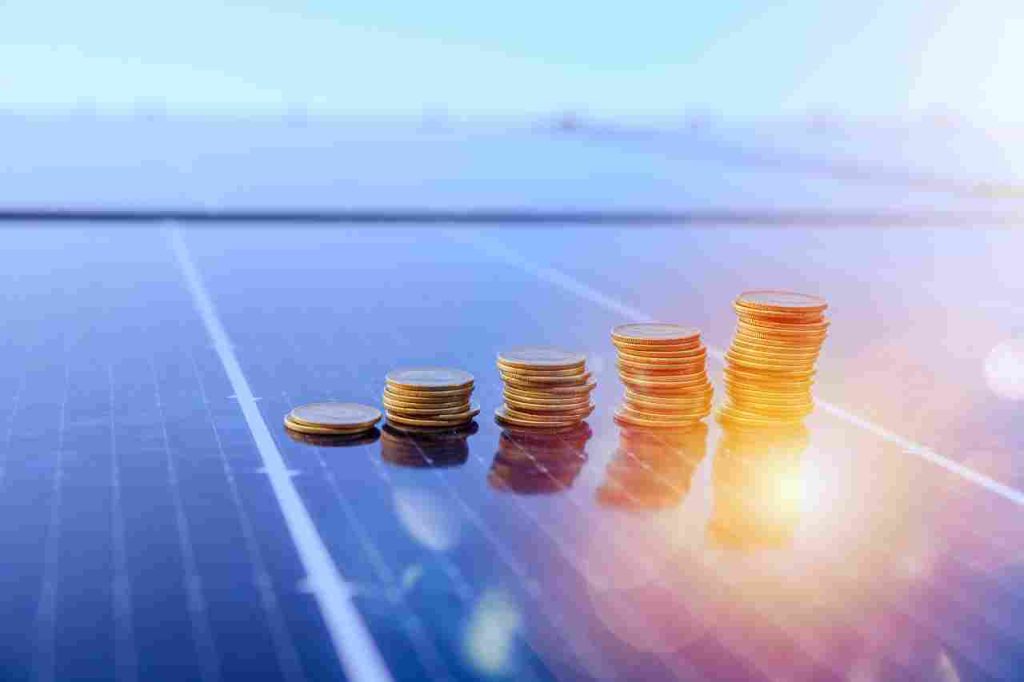
Decreased greenhouse gas emissions are one of the biggest benefits of green investing. Solar, wind, and hydropower are a few examples of renewable energy sources that provide electricity with little to no direct emissions of greenhouse gases like carbon dioxide (CO2).
Supporters of these technologies help to replace fossil fuels, which are the main cause of CO2 emissions, in the process of generating energy. This decrease in emissions not only slows climate change but also improves air quality and public health.
Moreover, green investing aids in the preservation of our planet for future generations. As the world grapples with the consequences of environmental degradation, investing in renewable energy offers a tangible way to address these challenges.
By supporting projects that promote sustainable practices and reduce environmental harm, investors actively contribute to the protection of ecosystems, biodiversity, and natural resources. This, in turn, fosters a healthier and more resilient planet for future generations to enjoy and inherit.
Diversification
Diversification is a fundamental strategy in investment that aims to spread risk across various asset classes and sectors. Adding renewable energy investments to your portfolio can be a highly effective means of enhancing diversification, and here’s why:
The clean energy sector exhibits a unique behavior compared to traditional financial markets. Pure energy stocks and renewable energy projects often operate with a degree of independence from economic cycles and market volatility.
This means that when standard markets experience turbulence, such as economic recessions or fluctuations in commodity prices, clean energy investments may remain relatively stable or even thrive. This non-correlation can be a valuable asset in your investment portfolio, as it safeguards against broader market risks.
Moreover, diversifying into the clean energy sector provides exposure to an industry with its own set of growth drivers and market dynamics. Factors like government policies supporting renewable energy, advancements in clean technology, and increasing environmental awareness drive the clean energy sector’s performance.
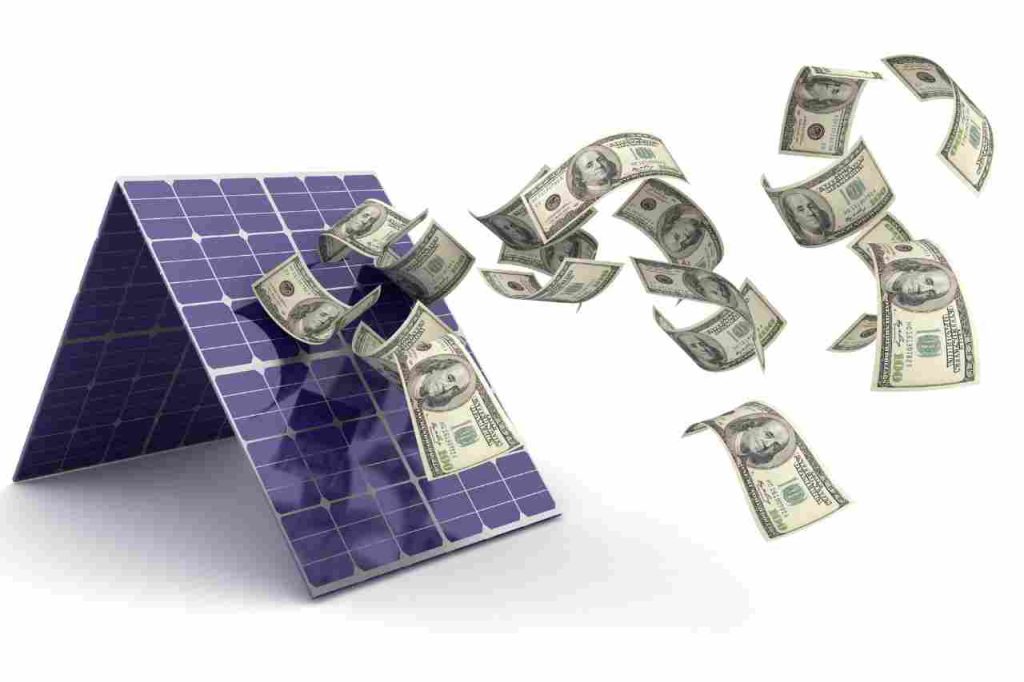
As these factors evolve independently of traditional market forces, they offer a unique source of potential returns and can help balance your overall portfolio risk.
A well-diversified portfolio that includes investments in renewable energy can operate as a stabilizing influence during periods of economic upheaval or market volatility, helping to protect your investments and possibly generating more stable returns.
For investors looking to minimize risk and reach long-term financial goals, diversification across asset types, including renewable energy, is a wise move.
Exploring Renewable Energy Investment Options
Solar Power
Solar power is one of the most prominent and accessible forms of renewable energy, making it an attractive sector for investors looking to capitalize on the growing clean energy market. Investing in solar energy offers numerous advantages, and there are various avenues to consider:
Solar Companies: Investing directly in solar companies can be a rewarding option. These companies are involved in various aspects of the solar industry, including the development, installation, and operation of solar energy systems.
Solar companies often benefit from long-term contracts, such as power purchase agreements, providing a steady revenue stream.
Solar Panel Manufacturers: Solar panel manufacturers are key players in the solar energy supply chain. Investing in these companies can be lucrative, especially if they produce innovative and cost-effective solar panels. Companies like First Solar, known for its thin-film solar panels, and SunPower, recognized for high-efficiency solar panels, have established themselves as leaders in this space.
Solar Infrastructure Projects: Investing in solar infrastructure projects, such as solar farms or photovoltaic installations, can offer stable returns over the long term. These projects generate electricity from sunlight and often have fixed, predictable revenue streams, making them attractive investments.
The solar industry’s growth prospects are strong, driven by decreasing solar technology costs, increased adoption, and supportive government policies. As the world shifts toward cleaner energy sources, solar power is well-positioned to play a pivotal role in the global energy landscape.
For investors seeking to contribute to a sustainable future while potentially enjoying attractive returns, the solar energy sector presents a compelling opportunity, with companies like First Solar and SunPower serving as notable examples of success in this thriving market.
Wind Power
Wind energy is another rapidly expanding renewable energy source. Wind farm operators and wind turbine manufacturers offer investment opportunities. Vestas Wind Systems and NextEra Energy Partners are notable examples of companies in the wind power sector.

Hydropower
Hydropower, generated from water flow, remains a reliable and established renewable energy source. Investors can consider companies involved in hydropower generation or infrastructure development. Brookfield Renewable Partners is a prominent player in this field.
Bioenergy
Bioenergy involves converting organic materials, such as wood or agricultural waste, into energy. Investments in bioenergy can include companies engaged in biofuel production, biogas plants, or biomass power generation.
Geothermal Energy
Geothermal energy harnesses the Earth’s heat from beneath the surface. Geothermal power plants and related infrastructure represent investment opportunities in this sector. Ormat Technologies is a leader in geothermal energy production.
Risks and Challenges
While renewable energy investments offer numerous benefits, it’s essential to be aware of potential risks and challenges:
Regulatory Changes
Government policies and incentives can significantly impact the renewable energy sector. Changes in regulations or subsidy programs may affect the profitability of investments.
Technological Innovation
Rapid advancements in renewable energy technology can lead to the obsolescence of older technologies. Investors must stay informed about industry developments to make informed decisions.
Market Volatility
Despite their relative stability, clean energy stocks can still experience market volatility, especially in response to geopolitical events or fluctuations in commodity prices.
Building a Green Investment Portfolio
Research and Analysis
Research and analysis must be done thoroughly for green investing to be successful. Consider elements like a company’s financial standing, future growth, and sustainability commitment.
Diversification
Diversify your renewable energy investments across different sectors and companies to spread risk. Avoid overconcentration in a single area of clean energy.

Long-Term Perspective
Green investing ideally suits long-term investors who can ride out short-term fluctuations. Patience can yield substantial rewards in the renewable energy sector.
Conclusion
Investing in renewable energy offers a promising path towards both financial success and a more sustainable future. As the world continues its transition to cleaner energy sources, green investing is not just an environmentally responsible decision; it’s also a financially sound one.
Whether through solar, wind, hydropower, bioenergy, or geothermal investments, the path to a cleaner, greener portfolio awaits those willing to embrace it. In summary, renewable energy investments are a smart choice for those looking to invest in a sustainable future while enjoying the potential for attractive returns.
With the global shift towards clean energy, green investing is not just an environmentally responsible decision; it’s also a financially sound one. Whether through solar, wind, hydropower, bioenergy, or geothermal investments, the path to a cleaner, greener portfolio awaits those willing to embrace it.










